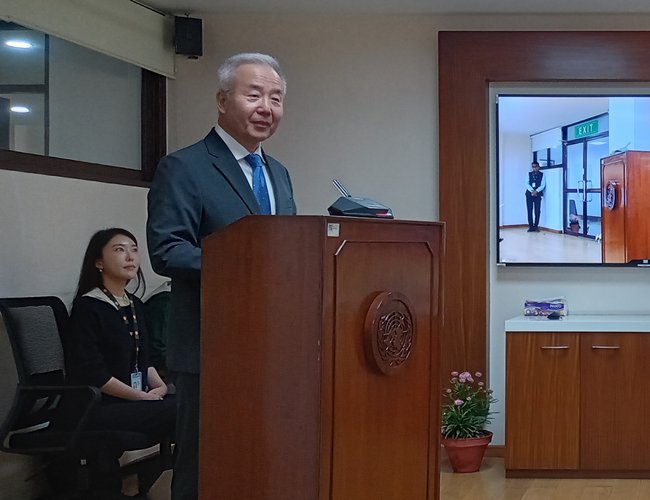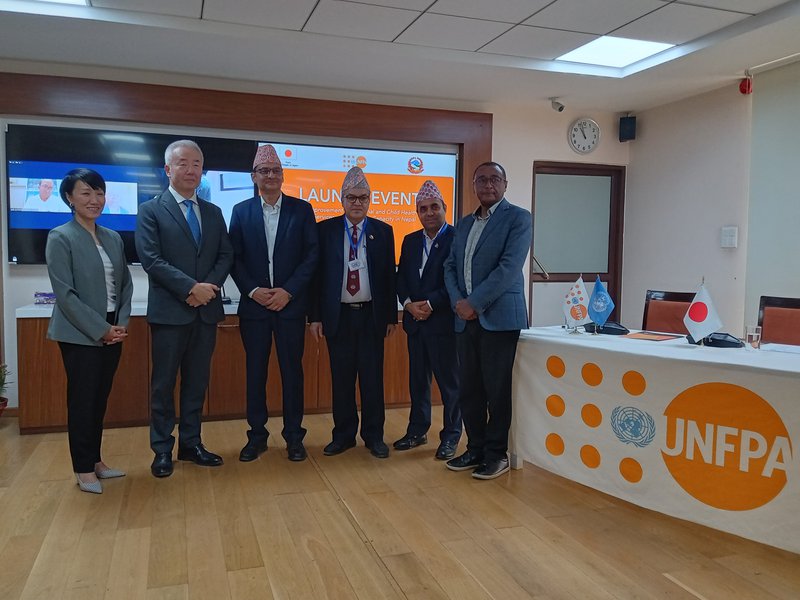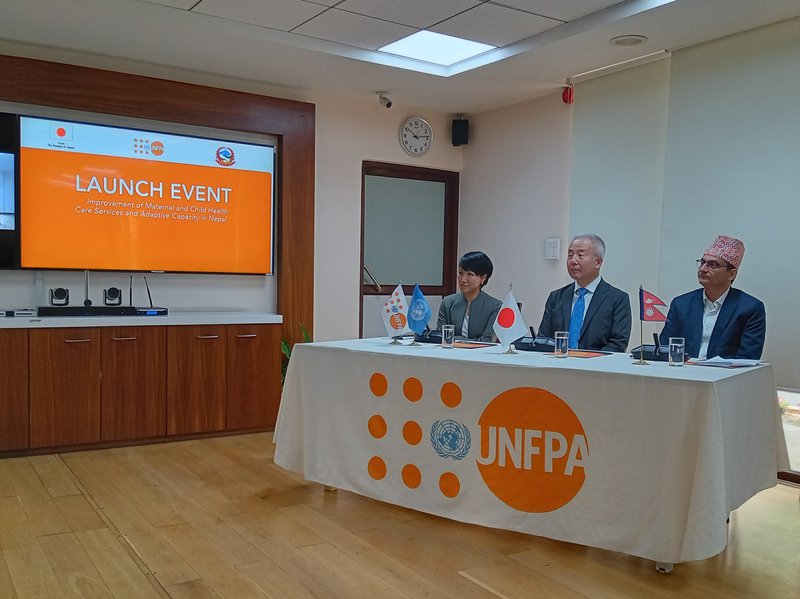

The Government of Japan and the United Nations Population Fund (UNFPA) have signed an agreement to implement the “Project for Improvement of Maternal and Child Health Care Services and Adaptive Capacity in Nepal,” a critical initiative to enhance healthcare resilience in the face of climate change and natural disasters.
Under this new partnership, the government of Japan under its subsidiary fund has provided USD 1.1 million to support the project, which will be implemented by UNFPA in close collaboration with the Government of Nepal.
The project will run for 12 months, starting in March 2025, focusing on two of Nepal’s most climate vulnerable districts — Jajarkot in Karnali Province and Rautahat in Madhesh Province.
The project will focus on rehabilitating and retrofitting 10 maternal health facilities, equipping them with solar power, energy-efficient medical equipment, and upgraded water and waste management systems. In addition, healthcare workers will receive specialized training to deliver quality maternal care, including emergency obstetric and newborn care, in crisis situations.
A total of 47,898 women and newborns are expected to directly benefit from this initiative each year, gaining access to quality maternal health services that are resilient to the shocks of climate change and natural disasters. Maeda Toru, His Excellency Ambassador of Japan to Nepal, highlighted the significance of this collaboration. “As Nepal faces growing climate-related challenges, Japan is proud to stand beside Nepal and UNFPA to ensure that maternal and newborn health services are protected, especially in remote and disaster-prone communities,” he remarked. Speaking at the signing ceremony, Young Hong, UNFPA Representative for Nepal, emphasized the project’s alignment with Nepal’s broader climate adaptation and disaster risk reduction efforts.

"This partnership underscores the urgent need to build resilient health systems that protect the most vulnerable—pregnant women and newborns—in the face of increasingly unpredictable crises,” she said. “We are grateful for Japan’s commitment to strengthening Nepal’s health system and safeguarding women’s health and rights.”
This project comes at a time when Nepal’s healthcare system is grappling with the compounded impacts of earthquakes, flooding, and heatwaves. According to recent assessments, maternal healthcare infrastructure in affected districts has struggled to remain functional during emergencies, underscoring the urgent need for investment in resilient healthcare systems. PRESS RELEASE Embassy of Japan P.O. Box 264, Kathmandu This latest initiative will not only contribute to reducing maternal mortality but will also advance Nepal’s progress toward achieving Sustainable Development Goals (SDGs), particularly SDG 3 (Good Health and Well-being), SDG 11 (Sustainable Cities and Communities), and SDG 13 (Climate Action).
The project also commemorates the enduring partnership between Nepal and Japan, which has spanned several decades and resulted in substantial contributions to Nepal’s development across sectors such as health, education, rural development, and disaster risk reduction. Japan and UNFPA reaffirm their shared commitment to supporting the people of Nepal, especially women and girls, by strengthening health systems that are inclusive, equitable, and resilient.
- Weather: Possibility Of Rain And Snowfall At some Places Today
- Apr 28, 2025
- Weather To Remain Partly To Generally Cloudy
- Apr 27, 2025
- KOICA Concludes Integrated Rural Development Project Worth 4.7 Million USD
- Apr 25, 2025
- Budget session Of Federal Parliament Begins Today
- Apr 25, 2025
- 10th Memorial Day Of Gorkha Earthquake
- Apr 25, 2025














